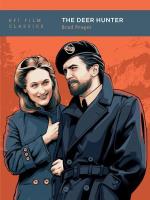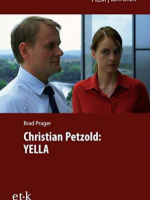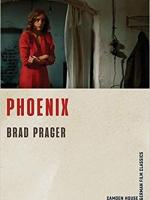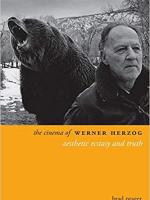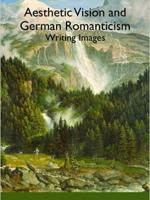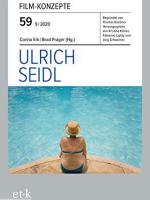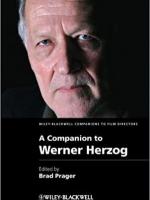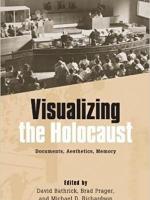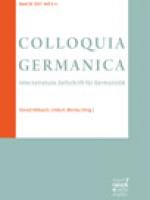
B.A. Stanford University
Ph.D. Cornell University
Brad Prager is a Professor of German and Film Studies at MU and he currently holds the Catherine Paine Middlebush Chair of Humanities. He was also appointed Faculty Fellow for Faculty Success in the Office of the Provost for 2024-26.
His areas of research include Film History, Holocaust Studies, Contemporary German Cinema, and the art and literature of German Romanticism. He is the author of After the Fact: The Holocaust in Twenty-First Century Documentary Film (New York: Bloomsbury, 2015), The Cinema of Werner Herzog: Aesthetic Ecstasy and Truth (London: Wallflower, 2007), Aesthetic Vision and German Romanticism: Writing Images (Rochester: Camden House, 2007), as well as monographs devoted to Christian Petzold’s films Phoenix (Rochester: Camden House, 2019) and Yella (edition text + kritik, 2020). He is the co-editor of a volume on Visual Studies and the Holocaust entitled Visualizing the Holocaust: Documents, Aesthetics, Memory (Camden House, 2008), of a volume on contemporary German cinema entitled The Collapse of the Conventional: German Cinema and its Politics at the Turn of the Twenty-First Century (Wayne State UP, 2010), the editor of A Companion to Werner Herzog (Wiley-Blackwell, 2012), and, together with Roger F. Cook, Lutz Koepnick, and Kristin Kopp, of Berlin School Glossary: An ABC of the New Wave in German Cinema (Intellect, 2013).
In Spring 2020 Professor Prager was a Distinguished Visiting Professor of German at Washington University in St. Louis. He received the Chancellor's Award for Outstanding Research and Creative Activity in 2015, and an Excellence in Education Award from the Division of Student Affairs in 2016. He has been a DAAD Guest Professor at the University of Paderborn, where he organized the conference “The Holocaust on Screen in the 21st Century." Until 2024 he was the university's appointed representative on the state's Holocaust Education and Awareness Commission; he has been a guest at the United States Holocaust Memorial Museum; he teaches for the Holocaust Educational Foundation in Evanston; and in the Summer of 2017 he was a Guest Professor in the Institute for Literature and Media at the Otto-Friedrich-Universität in Bamberg.
In Fall 2022 and Spring 2023 Professor Prager was awarded the Alexander Grass Memorial Fellowship to conduct research at the United States Holocaust Memorial Museum.
He is currently the co-editor of New German Critique and is on the editorial boards of the Leo Baeck Institute Year Book and Humanities. He is also on the advisory boards for the book series Vita Activa and German Film Classics. Together with Erin McGlothlin, he is the lead co-editor of the book series Dialogue and Disjunction: Studies in Jewish German Writing and Thought.
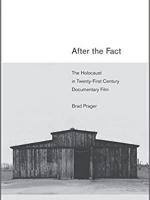
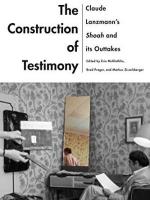
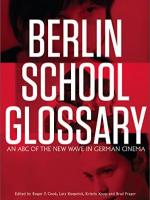

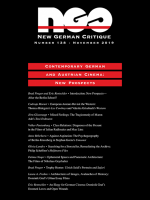

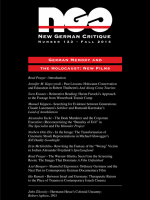
Selected Articles:
“Erwin Leiser’s Holocaust Documentary Mein Kampf (1960),” in The Oxford Handbook of Judaism and Film, ed. Olga Gershenson (Oxford: Oxford University Press, 2025). https://doi.org/10.1093/oxfordhb/9780197763711.013.0027.
“The Fear of Fear of Fear,” in New German Critique 156 (2025), 59-82. https://doi.org/10.1215/0094033X-11928213
“A Relentless Forward Movement: The German and un-German Cinema of Roland Klick,” in New German Cinema and Its Global Contexts, eds. Marco Abel and Jaimey Fisher. Detroit: Wayne State UP, 2025, 67-84.
“Marseille (Angela Schanelec, 2004) Off Screen: Ungesehenes, Ungehörtes,” in Lola, Toni, Yella und die anderen: Der deutsche Film nach 1990: Ein Kanon, eds. Corina Erk, Matteo Galli and Jörn Glasenapp. Munich: edition: text+kritik, 2023, 187-201.
“Israeli Soldiers in the Eyes of the Beholder: Claude Lanzmann’s Tsahal (1994),” Yale French Studies 141 (2022), Special issue: Claude Lanzmann After Shoah, eds. Michael Levine and Jared Stark, 101-122.
“With All the Force of Literalness: Ruth Klüger’s Survivor Testimonies in Erwin Leiser’s We Were Ten Brothers and Thomas Mitscherlich’s Journeys Into Life,” in The Ethics of Survival in Contemporary Literature and Culture, eds. Gerd Bayer and Rudolf Freiburg. Palgrave Macmillan, 2021, 291-309. https://doi.org/10.1007/978-3-030-83422-7.
“‘Is this really necessary?’: On Atrocity Images in the Classroom” in On Being Adjacent to Historical Violence, ed. Irene Kacandes. Berlin: Walter de Gruyter, 2021, 420-432. DOI: 10.1515/9783110753295-028.
“Real oder realistisch? Inszenierung und Bildkomposition in Ulrich Seidls Paradies: Liebe” in Filmkonzepte: Ulrich Seidl, eds. Corina Erk and Brad Prager (Munich: text + kritik, 2020), 66-84.
“Trophy Hunter: Ulrich Seidl’s Portraits and Safari,” in New German Critique 138 (2019), 157-79. https://doi.org/10.1215/0094033X-7727469
“Constructing Authorship: Werner Herzog is His Films,” in The German Cinema Book, 2nd Edition, eds. Tim Bergfelder, Erica Carter, Deniz Gökturk and Claudia Sandberg (British Film Institute, 2019), 231-39.
“Trial by documentary: the Harlans, between Jud Süss (1940) and Notre Nazi (1984),” in Holocaust Studies: A Journal of Culture and History (2019). https://doi.org/10.1080/17504902.2019.1637496
“Bad Acting, from Adolf Eichmann to Paul Maria Hafner: Testimonial Performance and Nazi Perpetrators,” in Performativity - Life, Stage, Screen: Re!ections on a Transdisciplinary Concept, eds. A. Dana Weber and Margaret E. Wright-Cleveland (LIT Verlag, 2018), 71-92.
“Testimonial Performances on Screen: From the Eichmann Trial to Kitty: Return to Auschwitz,” in Lessons & Legacies XII, eds. Paul B. Jaskot and Alexandra Garbarini (Northwestern University Press, 2018) 240-263. DOI: 10.2307/j.ctv4t7zgx.15. http://www.jstor.org/stable/j.ctv4t7zgx.15
“Running Images in Benjamin Heisenberg’s Films: A French Connection,” in A Transnational Art-Cinema: The Berlin School and Its Global Contexts, eds. Marco Abel and Jaimey Fisher (Detroit: Wayne State UP, 2018) 255-273. https://muse.jhu.edu/book/58636
“Angst um die Echtheit des Gefilmten: Zwischen Nick’s Film und ‘Wim’s Film’” in Film-Konzepte, Heft 50, Wim Wenders, Jörn Glasenapp, ed. 2018, 38-51.
“Hanna in Frankfurt?: On Stephen Daldry’s Adaptation of The Reader,” in Colloquia Germanica 48.1–2 (2015, published 2017), 43-58. https://www.jstor.org/stable/44478223
“No Time Like the Present: The Edges of the World in Christian Petzold’s Barbara,” Senses of Cinema (online), September 2017.
“German Film Ventures into the Amazon,” in German Ecocriticism in the Anthropocene, eds. Caroline Schaumann and Heather Sullivan (Palgrave Macmillan, 2017) 229-45. DOI: https://doi.org/10.1057/978-1-137-54222-9_13
“Pinpointing Evil: Nazi Family Photographs, Remediated,” in Persistent Legacy: The Holocaust and German Studies, eds. Jennifer Kapczynski and Erin McGlothlin (Camden House, 2016) 194-213. www.jstor.org/stable/10.7722/j.ctt1kzcc33.14
“The Holocaust Documentary: Sense, Meaning, and Redemptive Politics” in The Routledge Companion to Cinema and Politics, eds. Yannis Tzioumakis and Claire Molloy (Routledge Books, 2016) 242-52. DOI: 10.4324/9781315678863.ch19
“‘A challenge, maybe the greatest for a Filmmaker’: Televisual Perspectives on Rainer Werner Fassbinder’s Martha” in German Television: Historical and Theoretical Perspectives, eds. Larson Powell and Robert Shandley (Berghahn Books, 2016) 87-109. https://doi.org/10.2307/j.ctvr695tn.9
“The Act of Digging: Archaeology, Photography, and Forensics in Birthplace and Holocaust by Bullets” in Holocaust Cinema in the Twenty-First Century: Images, Memory, and the Ethics of Representation, eds. Gerd Bayer and Oleksandr Kobrynskyy (Wallflower/ Columbia University Press, 2015) 59-75.
"Introduction: Rolande Glicenstein’s Walter Benjamin Chapter 1," Postmodern Culture 25.3 (2015). DOI: doi:10.1353/pmc.2015.0018.
“The Warsaw Ghetto, Seen from the Screening Room: The Images that Dominate A Film Unfinished,” New German Critique 123 (2014), 135-57. https://doi.org/10.1215/0094033X-2753624. https://www.jstor.org/stable/43910637
“Lars Kraume’s Die kommenden Tage and the History of the Near Future: Apocalypse Another Day,” The Place of Politics in German Film, ed. Martin Blumenthal-Barby (Bielefeld: Aisthesis Verlag, 2014), 269-86.
“The Trail Runs Cold: DEFA’s Crime Films” in DEFA at the Crossroads of East German and International Film Culture: A Companion, eds.Marc Silberman and Henning Wrage (Berlin: Walter de Gruyter, 2014), 157-76. DOI: https://doi.org/10.1515/9783110273458.toc
“Aux limites du cadre: Werner Herzog n’est pas Alfred Hitchcock,” Décadrages 25 (Fall 2013), 8-20. DOI: https://doi.org/10.4000/decadrages.719
“Nazi, Interrupted: Cutting into the Past in Malte Ludin’s Documentary 2 oder 3 Dinge, die ich von ihm weiß,” Colloquia Germanica 43.1 (2013): 69-88. https://www.jstor.org/stable/23982079
“Foreword” in S. S. Prawer, Nosferatu: Phantom der Nacht, 2nd ed. (London: British Film Institute, 2013), 6-12.
“Leben heißt Posieren: Bilder aus dem Warschauer Ghetto—mit Susan Sontag betrachtet,” Fotogeschichte 126/ Vol. 32 (2012): 37-48.
“Gegenspieler und innere Dämonen—Dominik Grafs Im Angesicht des Verbrechens” in Im Angesicht des Fernsehens: Der Filmemacher Dominik Graf, eds. Chris Wahl, Marco Abel, Jesko Jockenhövel and Michael Wedel (text + kritik, 2012) 215-237.
“Resemblances: Between German Film Studies and History,” German Studies Review 35.3 (2012): 490-494. https://muse.jhu.edu/article/488484
“Offending the Public: Handke, Herzog, Hypnosis,” Telos 159 (2012): 93-104. DOI: 10.3817/0612159093
“‘Only the Wounded Honor Fights’: Züli Aladağ’s Rage and the Drama of the Turkish German Perpetrator” in Turkish German Cinema in the New Millennium: Sites, Sounds, and Screens, eds. Sabine Hake and Barbara Mennel (Berghahn Books, 2012) 109-120. https://doi.org/10.2307/j.ctt9qcjhz
“Werner Herzog’s Companions: The Consolation of Images” in A Companion to Werner Herzog, ed. Brad Prager (Boston and London: Wiley-Blackwell, 2012) 1-31.
“Through the Looking Glass: Fassbinder’s World on a Wire” in A Companion to Rainer Werner Fassbinder, ed. Brigitte Peucker (Boston and London: Wiley-Blackwell Publishing, 2012) 245-66.
“Occupation as the Face of War: Concealing Violence in the Diary A Woman in Berlin” in Fighting Words and Images: Representing War Across the Disciplines, eds. Elena Baraban, Stephan Jaeger, and Adam Muller (University of Toronto Press, 2012) 65-83.
“Mit den Augen des Tieres – Werner Herzogs Primaten” in Lektionen in Herzog: Neues über Deutschlands verlorenen Filmautor Werner Herzog und sein Werk, ed. Chris Wahl (text + kritik, 2011) 210-33.
“Music After Mauthausen: re-Presenting the Holocaust in Stefan Ruzowitzky’s The Counterfeiters” in New Directions in German Cinema, eds. Paul Cooke and Christopher Homewood (I.B. Tauris, 2011) 77-93.
“On Blank’s Screen: Les Blank’s Werner Herzog Eats His Shoe and the Gravity of the Director’s Subject,” Studies in Documentary Film 4.2 (2010): 119-35. DOI: 10.1386/sdf.4.2.119_1
“Play it Again, Traude: The Transgenerational Transfer of Wounds in Chris Kraus’s Vier Minuten” in Generational Shifts in Contemporary German Culture, eds. Laurel Cohen-Pfister and Susanne Vees-Gulani (Camden House, 2010) 115-35.
“Convergence Insu!ciency: On Seeing Passages between W. G. Sebald and the ‘Travel Writer’ Bruce Chatwin” in The Undiscover’d Country: W.G. Sebald and the Poetics of Travel, ed. Markus Zisselsberger (Camden House, 2010) 189-212.
“Suffering and Sympathy in Volker Schlöndorff’s Der neunte Tag and Dennis Gansel’s NaPolA” in Screening War: Perspectives on German Suffering, eds. Paul Cooke and Marc Silberman (Camden House, 2010) 187-206.
“Passing Time since the Wende: Recent German Film on Unification,” German Politics and Society 28.1 (2010): 95-110. DOI: https://doi.org/10.3167/gps.2010.280106. Reprinted in: From the Bonn to the Berlin Republic: Germany at the Twentieth Anniversary of Unification, eds. Jeffrey Anderson and Eric Langenbacher (New York: Berghahn, 2010) 115-130.
“Glimpses of Freedom: The Reemergence of Utopian Longing in German Cinema” in The Collapse of the Conventional: German Film and its Politics at the Turn of the Twenty-First Century, eds. Jaimey Fisher and Brad Prager (Wayne State UP, 2010) 360-85.
“Landscapes of the German Mind: The Indifferent Earth in Werner Herzog’s Films” in Cinema and Landscape: Film, Nation and Cultural Geography, eds. Graeme Harper and Jonathan Rayner (Bristol, UK: Intellect, 2009) 89- 102.
“The Stones Begin to Speak: The Laboring Subject in Early DEFA Documentaries” in German Postwar Films. Life and Love in the Ruins, eds. Wilfred Wilms and William Rasch (Palgrave Macmillan, 2008) 77-91. DOI: 10.1057/9780230616974_6
“The Holocaust without Ink: Absent Memory and Atrocity in Joe Kubert’s Graphic Novel Yossel: April 19, 1943 ” in The Jewish Graphic Novel: Critical Approaches, eds. Samantha Baskind and Ranen Omer-Sherman (Rutgers UP, 2008) 111-28.
“Interpreting the Visible Traces of Theresienstadt,” Journal of Modern Jewish Studies 7.2 (2008): 175-94. DOI: https://doi.org/10.1080/14725880802124206
“On the Liberation of Perpetrator Photographs in Holocaust Narratives” in Visualizing the Holocaust: Documents, Aesthetics, Memory, eds. David Bathrick, Brad Prager and Michael D. Richardson (Camden House, 2008) 19-37.
“The Haunted Screen (Again): The Historical Unconscious of Contemporary German Thrillers” in Victims and Perpetrators: 1933-1945. (Re)Presenting the Past in Post-Unification Culture, eds. Laurel Cohen-Pfister and Dagmar Wienroder-Skinner (Berlin: Walter de Gruyter, 2006) 296-315.
“Sebald’s Kafka” in W. G. Sebald: History - Memory - Trauma, eds. Scott Denham and Mark R. McCulloh (Berlin: Walter de Gruyter, 2006) 105-26.
“Air War and Allegory” in Bombs Away!: Representing the Air War over Europe and Japan, eds. William Rasch and Wilfred Wilms (Amsterdamer Beiträge zur neueren Germanistik 60, 2006) 25-43.
“The Good German: W.G. Sebald and the Risks of Holocaust Writing,” New German Critique 96 (2005): 75-102. https://www.jstor.org/stable/30040979
“A Collection of Damages: Critiquing the Violence of the Air War,” Forum on Modern Language Studies 41.3 (2005): 308-19. DOI: 10.1093/fmls/cqi023
“The Erection of the Berlin Wall: Thomas Brussig’s Helden wie wir and the End of East Germany,” Modern Language Review 99.4 (2004): 983-98. DOI: 10.2307/3738509. https://www.jstor.org/stable/3738509
“The Face of the Bandit: Racism and the Slave Trade in Herzog’s Cobra Verde,” Film Criticism 28.3 (2004): 2-20. https://www.jstor.org/stable/44019135
“Werner Herzog’s Hearts of Darkness: Fitzcarraldo, Scream of Stone and Beyond,” Quarterly Review of Film and Video 20.1 (2003): 23-36. DOI: https://doi.org/10.1080/10509208.2003.10555038
“Beleaguered under the Sea: Wolfgang Petersen’s Das Boot as a German Hollywood Film” in Light Motives: German Popular Film in Perspective, eds. Randall Halle and Maggie McCarthy (Detroit: Wayne State UP, 2003) 237-58.
“Modernism in the Contemporary Graphic Novel: Chris Ware and the Age of Mechanical Reproduction,” International Journal of Comic Art 5.1 (2003): 195-213.
“Kant in Caspar David Friedrich’s Frames,” Art History 25.1 (2002): 68-86. DOI: https://doi.org/10.1111/1467-8365.00303
“The West German East German Novel: Jurek Becker’s Schla!ose Tage in Context,” Gegenwartsliteratur Vol. 1, ed. Paul Michael Lützeler (2002): 190-213.
“Taming Impulses: Murnau’s Sunrise and the Exorcism of Expressionism,” Literature/ Film Quarterly 28.4 (2000): 284-92. https://www.jstor.org/stable/43797004
“The Contours of the Visual Arts in Tieck’s Franz Sternbalds Wanderungen: Text/ Image/ Phantasm,” Seminar: A Journal of Germanic Studies 35.3 (1999): 189-206. DOI: https://doi.org/10.3138/sem.v35.3.189
“The Death Metaphysics of Heiner Müller’s The Task,” New German Critique 73 (1998): 67-80. DOI: 10.2307/488649. https://www.jstor.org/stable/488649
“A Sort of Homecoming: An Archaeology of Disneyland,” in Streams of Cultural Capital, eds. David Palumbo-Liu and Hans Ulrich Gumbrecht (Stanford: Stanford UP, 1998) 199-219. With Michael D. Richardson. Originally published in Stanford Literature Review 10.1-2 (1993): 187-207.
